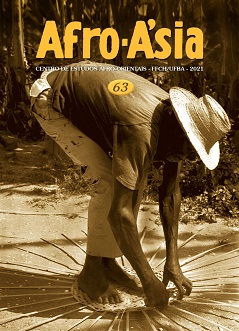Gender and sexual diversity, National State and heterotopic landscape in Iran
Foucault and beyond
DOI:
https://doi.org/10.9771/aa.v0i63.38245Keywords:
Sexuality, State, Nation, Heterotopia, IranAbstract
At the end of the 1970s, the world followed the revolutionary events that led to the end of the monarchy and the establishment of an Islamic republic in Iran. Michel Foucault saw these events, characterized by a “political spirituality”, as a potential critic of Western modernity. This study presents a reflection on the effect of this “political spirituality” in the construction of a national State based on technologies of power/knowledge that generate a dystopia and shape a national theocratic ideology concerned with the control of bodies and the imposition of heteronormativity. This article shows the original ways of resistance established to counter the regime of truth and to produce an alternative way of being, especially regarding the experiences of gender and sexual diversity. These ways compose a heterotopic landscape that challenge the reigning dystopia, as suggested by observations in Iran in February 2019.
Downloads
Downloads
Published
How to Cite
Issue
Section
License
Copyright (c) 2021 Fabiano Gontijo

This work is licensed under a Creative Commons Attribution 4.0 International License.
You are entitled to freely share, adapt and use the work herein published for any legitimate purpose as long as authorship and the original source are acknowledged.




